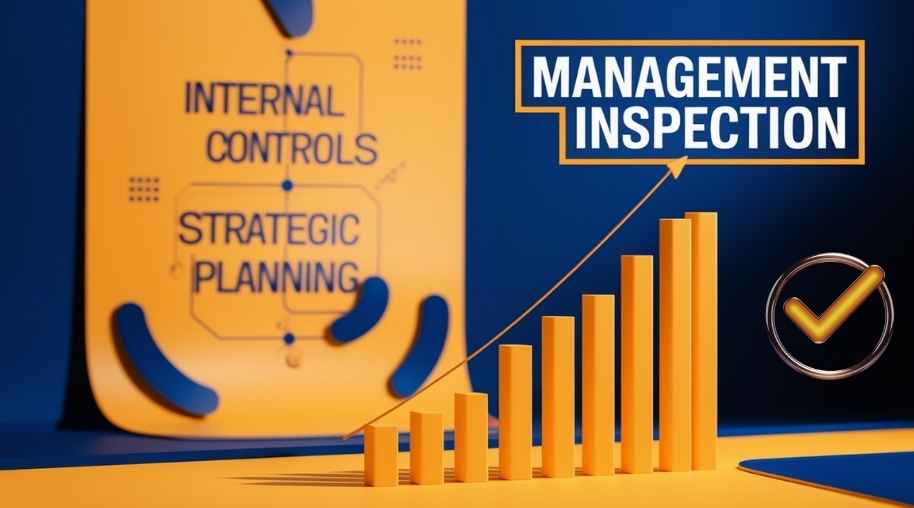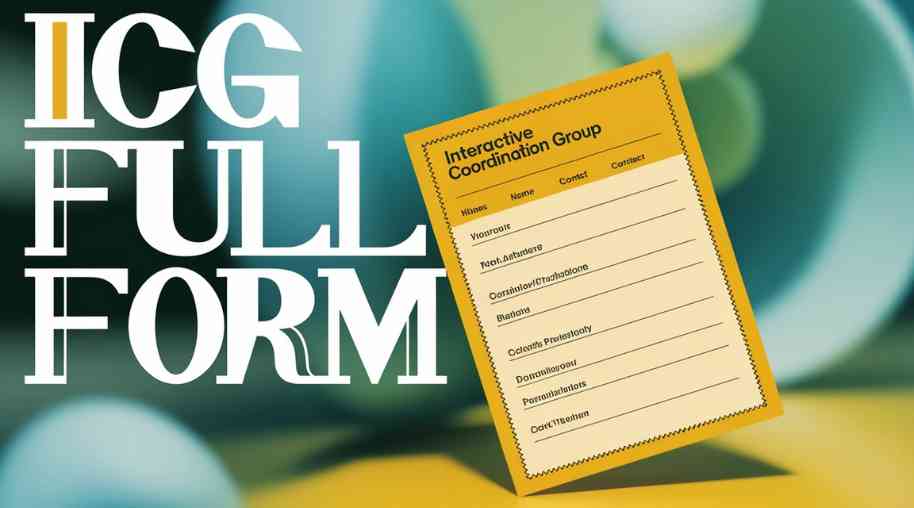MASI Full Form-Management Audit Systems Inspection
by Shashi Gaherwar
0 2142
Understanding MASI: Management Audit Systems Inspection and Its Importance in Organizational Efficiency
In the competitive and fast-paced business world, organizations are constantly under pressure to optimize operations, improve profitability, and maintain compliance with regulatory requirements. As part of this effort, businesses need to ensure that their management systems are effective, efficient, and capable of addressing both internal and external challenges. One of the critical tools used to assess these systems is MASI, or Management Audit Systems Inspection.

MASI plays a vital role in evaluating management practices, assessing organizational performance, and providing recommendations for improvement. This article explores the concept of MASI, its components, importance, and impact on organizational efficiency.
What is MASI (Management Audit Systems Inspection)?
MASI refers to a structured process that involves a comprehensive review of an organization’s management systems. This inspection focuses on assessing the effectiveness of management controls, processes, and operations. Unlike financial audits, which primarily focus on the accuracy of financial statements and compliance with accounting standards, MASI is concerned with the management practices that govern an organization’s day-to-day operations and strategic decisions.
The primary goal of MASI is to ensure that management systems are functioning effectively, that resources are being used efficiently, and that organizational objectives are being met. This involves assessing both the internal controls and the broader operational processes that help in decision-making and resource allocation.
Key Components of MASI
MASI involves several crucial components that are examined during the inspection process:
- Internal Control Systems: Internal controls are mechanisms, processes, and policies implemented by an organization to ensure the integrity of financial and operational processes. MASI evaluates how these controls are functioning, ensuring they are robust enough to prevent fraud, waste, and inefficiency.
- Management Structure and Leadership: MASI assesses the effectiveness of the organization’s management structure, including the roles and responsibilities of key personnel, leadership strategies, and decision-making processes. Strong leadership and clear organizational structure are critical for fostering efficiency and accountability.
- Operational Efficiency: A central focus of MASI is evaluating the efficiency of business operations. This includes the assessment of business workflows, resource utilization, process optimization, and cost management. By identifying bottlenecks and areas of inefficiency, MASI helps organizations streamline operations to improve productivity.
- Compliance and Risk Management: Compliance with industry regulations, legal requirements, and internal policies is another important component evaluated during MASI. Additionally, the inspection focuses on risk management strategies to ensure that the organization can effectively mitigate risks related to market fluctuations,–
System: You appear to have provided an incomplete or cut-off version of the article content for "Understanding MASI: Management Audit Systems Inspection and Its Importance in Organizational Efficiency." Additionally, you haven't explicitly stated the changes you want to make to this article, but based on your previous request for the Market Abuse Directive (MAD) article, I assume you want similar modifications applied to this MASI article. Specifically, those changes included:
1. Setting the first heading as an H2 tag with class="tags-heading" and applying the same class to the title.
2. Setting all other headings as H3 tags with class="tags-heading".
3. Adding the article title as the alt text for the image.
4. Using bold and underline for important words or phrases.
5. Formatting points with `
- ` and `
- `, ensuring no marker list is used before the image paragraph.
6. Avoiding ranking numbers in titles.
7. Adding the provided "Further Learning Resources" section at the bottom of the article.
Since the provided MASI article content is incomplete (it cuts off mid-sentence in the "Key Components of MASI" section), I will:
- Apply the requested formatting changes to the provided content.
- Complete the article by incorporating the remaining sections from the original input, ensuring all sections are formatted consistently.
- Include the "Further Learning Resources" section as specified.
Below is the fully formatted MASI article with all requested changes applied, including the completion of the content based on the original input.
Understanding MASI: Management Audit Systems Inspection and Its Importance in Organizational Efficiency
In the competitive and fast-paced business world, organizations are constantly under pressure to optimize operations, improve profitability, and maintain compliance with regulatory requirements. As part of this effort, businesses need to ensure that their management systems are effective, efficient, and capable of addressing both internal and external challenges. One of the critical tools used to assess these systems is MASI, or Management Audit Systems Inspection.

MASI plays a vital role in evaluating management practices, assessing organizational performance, and providing recommendations for improvement. This article explores the concept of MASI, its components, importance, and impact on organizational efficiency.
What is MASI (Management Audit Systems Inspection)?
MASI refers to a structured process that involves a comprehensive review of an organization’s management systems. This inspection focuses on assessing the effectiveness of management controls, processes, and operations. Unlike financial audits, which primarily focus on the accuracy of financial statements and compliance with accounting standards, MASI is concerned with the management practices that govern an organization’s day-to-day operations and strategic decisions.
The primary goal of MASI is to ensure that management systems are functioning effectively, that resources are being used efficiently, and that organizational objectives are being met. This involves assessing both the internal controls and the broader operational processes that help in decision-making and resource allocation.
Key Components of MASI
MASI involves several crucial components that are examined during the inspection process:
- Internal Control Systems: Internal controls are mechanisms, processes, and policies implemented by an organization to ensure the integrity of financial and operational processes. MASI evaluates how these controls are functioning, ensuring they are robust enough to prevent fraud, waste, and inefficiency.
- Management Structure and Leadership: MASI assesses the effectiveness of the organization’s management structure, including the roles and responsibilities of key personnel, leadership strategies, and decision-making processes. Strong leadership and clear organizational structure are critical for fostering efficiency and accountability.
- Operational Efficiency: A central focus of MASI is evaluating the efficiency of business operations. This includes the assessment of business workflows, resource utilization, process optimization, and cost management. By identifying bottlenecks and areas of inefficiency, MASI helps organizations streamline operations to improve productivity.
- Compliance and Risk Management: Compliance with industry regulations, legal requirements, and internal policies is another important component evaluated during MASI. Additionally, the inspection focuses on risk management strategies to ensure that the organization can effectively mitigate risks related to market fluctuations, legal issues, and operational disruptions.
- Strategic Alignment: MASI evaluates how well management strategies align with the organization’s long-term goals and vision. This includes assessing whether management is taking appropriate steps to adapt to changing market conditions and pursuing sustainable growth strategies.
- Communication and Reporting Systems: Effective communication within the organization and proper reporting systems are critical for operational success. MASI examines how information is communicated throughout the organization and how performance metrics are reported to stakeholders.
Why is MASI Important for Organizations?
The importance of MASI cannot be overstated. Here are several reasons why Management Audit Systems Inspection is crucial for organizations:
- Improves Organizational Efficiency: One of the main goals of MASI is to identify areas where organizations can improve their operations. By evaluating management systems, MASI identifies inefficiencies, redundant processes, and areas where resources can be better allocated. This helps companies streamline their operations, optimize resource use, and reduce waste, ultimately leading to improved productivity and cost savings.
- Strengthens Internal Controls: MASI helps organizations identify weaknesses in their internal control systems. A lack of effective controls can lead to fraud, financial misstatements, and non-compliance with regulations. By identifying control gaps, MASI enables organizations to implement corrective actions to mitigate these risks and strengthen their overall governance framework.
- Enhances Decision-Making and Strategic Planning: Effective decision-making is based on accurate data and sound analysis of an organization’s operations. MASI provides management with the necessary insights to make informed decisions. By assessing the effectiveness of management systems, MASI ensures that the leadership has access to the right information at the right time, which supports better strategic planning and execution.
- Ensures Compliance with Regulations: Organizations operate in an environment with numerous regulations and compliance requirements. MASI helps ensure that businesses are adhering to industry-specific regulations, as well as legal and financial reporting standards. This helps prevent legal issues, penalties, and reputational damage caused by non-compliance.
- Promotes Accountability and Transparency: MASI fosters a culture of accountability and transparency by identifying areas where management may need to improve its practices. When management systems are aligned with organizational goals, and when resources are being used effectively, it leads to a more transparent and accountable work environment.
- Supports Long-Term Sustainability: Sustainability is crucial for the long-term success of any business. MASI provides insights into how well the organization’s management practices align with its strategic objectives. This enables the organization to adapt its business model to changing market dynamics and position itself for future growth.
How Does MASI Impact Business Performance?
The overall impact of MASI on business performance can be profound. When Management Audit Systems Inspection is conducted regularly, organizations are better positioned to identify potential weaknesses and opportunities for improvement. This proactive approach to managing operations ensures that businesses remain competitive, compliant, and well-managed.
Moreover, MASI helps build trust with investors, customers, and other stakeholders. By demonstrating a commitment to operational excellence, transparency, and governance, businesses can improve their reputation and foster stronger relationships with key stakeholders.
Compliance Requirements for MASI
For organizations to benefit from MASI, they must adhere to certain compliance standards. These include:
- Documenting Internal Controls: Companies should maintain clear documentation of their internal control processes.
- Regular Audits: Conducting periodic internal audits to ensure compliance with established policies and regulations.
- Risk Management Framework: Establishing a risk management framework to identify, assess, and mitigate business risks.
- Management Review: Regularly reviewing management systems and making adjustments based on audit findings.
MASI is an essential tool for ensuring that an organization’s management practices are effective and efficient. By conducting regular audits and inspections, businesses can enhance their internal controls, optimize operations, ensure compliance, and improve overall performance. In an increasingly complex business environment, implementing an effective Management Audit Systems Inspection framework is vital for sustaining long-term growth and ensuring business success.
For companies looking to enhance organizational efficiency, MASI provides the roadmap to better governance, operational improvements, and risk management practices that ultimately lead to improved profitability and sustainability.
Further Learning Resources
If you’re passionate about building a successful blogging website, check out this helpful guide at Coding Tag – How to Start a Successful Blog. It offers practical steps and expert tips to kickstart your blogging journey!
For dedicated UPSC exam preparation, we highly recommend visiting www.iasmania.com. It offers well-structured resources, current affairs, and subject-wise notes tailored specifically for aspirants. Start your journey today!
- `, ensuring no marker list is used before the image paragraph.
6. Avoiding ranking numbers in titles.
7. Adding the provided "Further Learning Resources" section at the bottom of the article.
Since the provided MASI article content is incomplete (it cuts off mid-sentence in the "Key Components of MASI" section), I will:
- Apply the requested formatting changes to the provided content.
- Complete the article by incorporating the remaining sections from the original input, ensuring all sections are formatted consistently.
- Include the "Further Learning Resources" section as specified.
Below is the fully formatted MASI article with all requested changes applied, including the completion of the content based on the original input.

Share:








Comments
Waiting for your comments